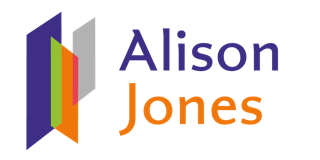 If you’re writing a business book, I’m willing to bet at some point you’ve had this thought: ‘I need to provide a reference for this.’
If you’re writing a business book, I’m willing to bet at some point you’ve had this thought: ‘I need to provide a reference for this.’
Alternatively, you might have thought: ‘I wonder what the latest thinking is on this subject?’
Peer-reviewed scholarly research is the gold standard of referencing, but until recently it was impossible to access it unless you were affiliated to an academic institution that was stumping up the subscription fee for the journal you wanted to access, or which had purchased the necessary ebook collection.
Open Access has been one of the most significant and disruptive forces in publishing in recent years (see my LinkedIn article – https://www.linkedin.com/pulse/learning-from-learned-1-open-access-alison-jones – and why not connect with me while you’re there?). I tend to think of it in publishing terms: its significance as a business model, the systems implications, the issues that arise in subjects without generous publication funding (that’ll be most of the humanites, then), but today I’m thinking of it as a punter, not a publisher.
The beautiful thing about Open Access research is – self-evidently – that we can all get access to it. Ironically though, because nobody stands to make a profit from selling it, there’s no formal marketing effort behind it. Which means that although it’s open it can still be very hard to find. (And often very hard to make sense of, but that’s a whole other blog.)
Here are some of the places you can go to read what the world’s finest brains have to say on an incredibly wide range of subjects:
- JSTOR has an OA list which includes around 100 books in humanities and social sciences
- Another good sources for OA humanities and social sciences books is OAPEN, based in The Netherlands and involving a coalition of European partners
- SAGE Open focuses squarely on social sciences
- If you’re particularly interested in science, the granddaddy of OA publishing is PLoSOne: Public Library of Science
- DOAJ (the Directory of Open Access Journals) has a useful search engine that covers nearly 2.5 million articles
- If you’re interested in the research from a particular university, see if you can access its institutional repository. Many universities, particularly in the US, now require faculty to submit their research to an institutional repository, which is often available to search for free online. Harvard was a pioneer in this space, and the DASH repository is a model of its kind.
- And finally, the granddaddy of them all is Google Scholar, which pulls in articles from all these sources. I’m always surprised how few non-academics know about this brilliant tool for finding journal articles, which now also includes OA books. Although the search returns articles that are hidden behind paywalls as well as OA papers, you can easily see if a PDF is available. And even if you can’t see the full text, you can read the abstract and if you really need it, there may be a pay-per-view option. (Or write to the author and ask nicely – you never know.)
What are you curious about? Go do the research.
(Hat-tip to Emily Labram at Bibliocloud for reminding me how ace OA is for curious minds and also how difficult it can be to find!)
